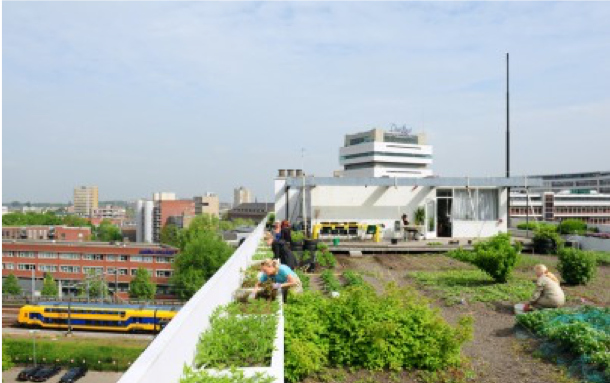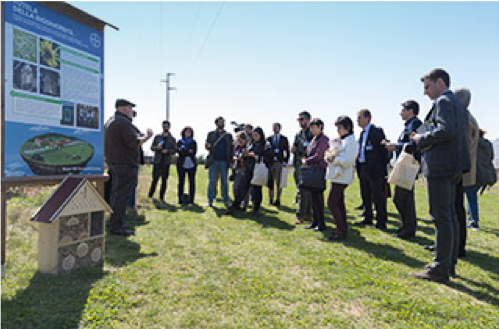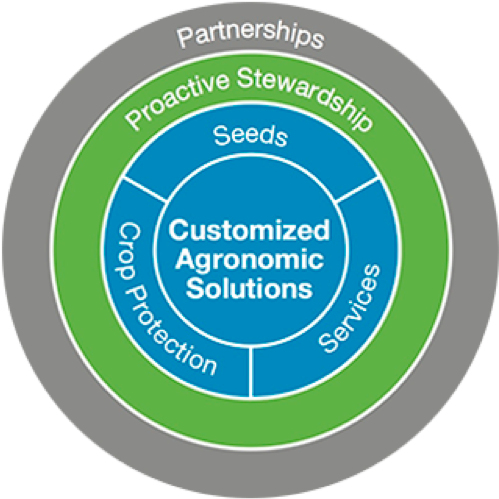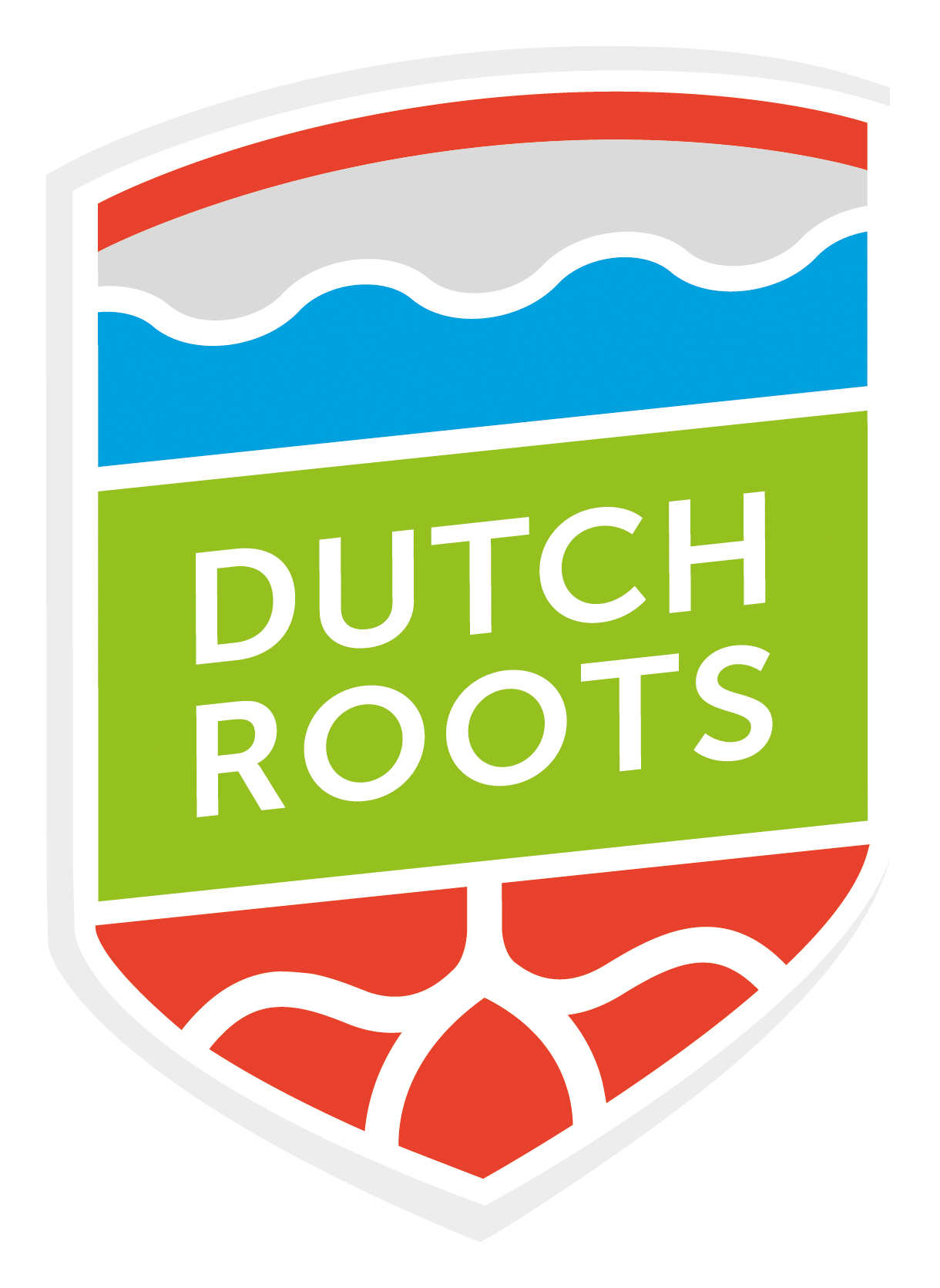Feeding the City
Saturday 14 July – Southern tour
There are different ways to feed our cities in the future, let’s take a few examples. The tour starts at Herenboeren in Boxtel. The farm is shared by 200 families who together make decisions about what they grow and how they farm. The second stop is in Rotterdam at DakAkker, an organization that grows crops on the roofs in the middle of a big city. This tour ends at Bayer Forward Farm, where the focus is on high productivity and efficiency. How will we feed our cities in the future will be the big issue this day.
Herenboeren
Cooperative sustainable food production
Many people would want to have access to homegrown produce and meat: delicious, healthy, and local. However, not everyone has access to a private farm, a vegetable garden, enough time on their hands, or a green thumb. Now, there is a solution: the ‘Herenboerderij’ [farmers co-op]. The farmers co-op is a small farming cooperative, owned by approximately 200 families (‘Herenboeren’). Together they decide what to eat and what the farm shall produce. The farmer, who is employed by the cooperative, grows a dozen types of fruits and vegetables and looks after the farm animals that produces meat and eggs. The participating families (‘Herenboeren’) contribute a one-time 2,000 Euros for the formation of the farm. All participating families share in the annual operating cost. This includes the farmers’ salary, real estate cost, utilities, seeds and plants, and food for the farm animals. The annual recurring cost may vary by farm, however, for approximately 10 euros (per person, per week) you will be eating healty and fresh food from your own farm.
Start your own ‘Herenboerderij’ (farmers co-op)
Not the farmer or the farm are at the inception of the ‘Herenboerderij’, but the founding participating families (‘Herenboeren’) start the cooperative. Approximately 150 households are required to commence the local intitiave and start the cooperative. Enthusiastic and commited founding families use social media and information nights to gather like-minded families that are passionate about sustainable and local food production for their own consumption. After approximately 50-100 people are involved and committed, the search for a farm location and farmer can begin. The ‘Herenboerderij’ (farmers co-op) and a board of directors will be established.
Herenboeren Nederland
Local enthusiastic community members aren’t alone in their quest. They receive support from ‘Herenboeren Nederland’. This organization aids in the establishment of the farm and shares its extensive knowledge and experiences. ‘Herenboeren Nederland’ supports the participating founding families of a farmers co-op with communication and organizational direction for the cooperative, farm, and farmer.
Dakakker
The idea
Hofplein was once a lively spot in the heart of Rotterdam. After twenty years, this area has been neglected and detached. The Hofplein’ surroundings illustrate a blind spot in the centre of the city. Rotterdam Central District carries the advantage of being a prime location in the city, however it is dominated by abandoned open spaces and vacant high rise buildings. In the context of the current market oriented economy it would take years for redevelopment to begin. The city cannot afford to wait: the question of space is too complex to address in the future. Therefore it is the responsibility of Rotterdam to react to the problem of abandoned and derelict spaces. In order to achieve this, new entrepreneurs and residents should be enthused to contribute to the development of a progressive public space.
The Bridge
The Luchtsingel is a 390 meter wooden bridge for pedestrians that connects the Center and the North of Rotterdam. It is a triggering force for new developments in a part of the city that has been forgotten for a long time. The bridge is also a catalyst for economic growth. Because of its length and its complex structure, the bridge is built and assembled in segments. There were a total of six phases for construction. The first phase was realised in 2012 and the last part was built in August of 2014. The official opening of the Luchtsingel was on August 20th of 2015.
DakAkker (Rooftop Garden)
On the roof of the Schieblock, is the first harvestable garden in the Netherlands, cultivating fruits, vegetables, herbs and even honey. It functions as a space for experimentation with different manners of growing vegetables on building rooftops. The DakAkker was built in 2012 by Binder Groenprojecten, with concept and design from ZUS [Zones Urbaines Sensibles] and development and collaboration from Rotterdam Milieucentrum (Environmental Centre of Rotterdam). This rooftop garden is a part of the Stadsinitiatief (city initiative) Luchtsingel project.

Station Hofplein
In collaboration with Hofbogen b.v. and local entrepreneurs the roof of the Hofbogen will be the landing site of the Luchtsingel. The roof will house both events and small-scale initiatives. Greening the roof will create a unique place to picnic or walk with magnificent views of the city. The potential of the roof has already contributed to a positive business climate for entrepreneurs in and around the Hofbogen area.
Park Pompenburg
Pompenburg was a storage area situated between busy roads and rail, but has been transformed into a unique place for Rotterdam: Park Pompenburg. The surrounding landscape provides space for recreation and urban agriculture, such as a lawn, a cooperative quarter, sports courts and barbecue areas. The park is the pivoting point within a larger network of public green.
Bayer ForwardFarm
Demonstrating Sustainable Agriculture in Practice
Bayer ForwardFarming is a knowledge platform that demonstrates sustainable agriculture in practice.
In partnership with independent farmers, the initiative creates opportunities for demonstration, dialogue and collaboration on farms around the world. Customized agronomic solutions, proactive stewardship measures, and partnerships are implemented to show how, in modern agriculture, sustainability can be achieved.

What is a Bayer ForwardFarm?
ForwardFarms are independent farms that are representative of the region in which they are located. The farmers proactively seek improvements in sustainable agriculture practices. The farms serve as a hub for exchange of ideas and insights that can be implemented locally, and globally.
These farms benefit from partnerships with both the public and private sector to support their business, produce high-quality food, feed, and renewable raw materials, while at the same time preserving farmland and natural resources such as water, soil and biodiversity.


